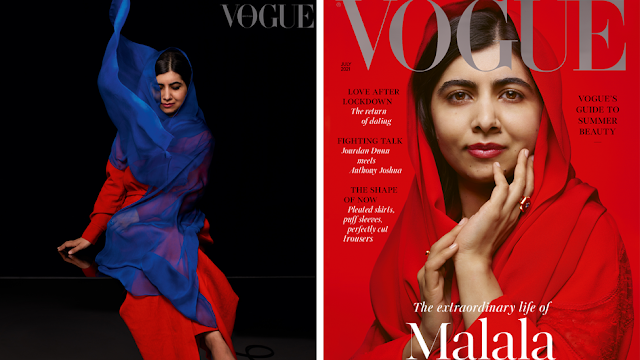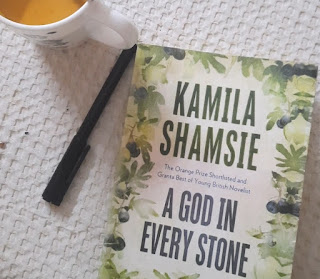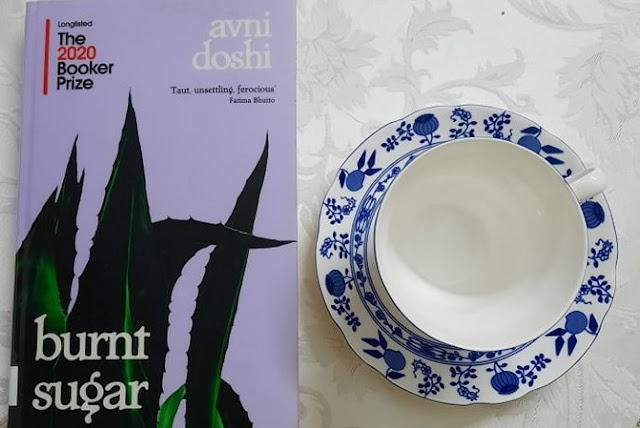Malala and the Pressure on Pakistani Women to Marry
 |
| Malala for Vogue. Photography: Nick Knight, Source: vogue.co.uk |
The first time my parents met each other was on their wedding night, after they had signed their marriage contract. My mother was 23 and my father 29. This was, and to an extent still is, not unusual in many communities in Pakistan. I have often questioned my mother on this: how could she have agreed to marry a man she had never even spoken to? For her, that is just how the world worked. I asked her whether she could have just said no. “Well, I didn’t know you could do that”.
In a recent interview with Vogue, Pakistani activist and Nobel Prize laureate Malala Yousafzai was briefly quoted discussing marriage:
“I still don’t understand why people have to get married. If you want to have a person in your life, why do you have to sign marriage papers, why can’t it just be a partnership?” Malala was speaking in the context of a conversation with her mother, who was adamant that she will have to get married because ‘marriage is beautiful’. Malala’s query about marriage circulated the internet, accompanying accusations declaring her ‘un-Islamic’ to a ‘bane to society’ for challenging the institution of marriage. Her interview was met with an eruption of backlash: most alarmingly was the arrest of a cleric who threatened her life by inciting a suicide attack. Despite the extraordinary life she has led: surviving a Taliban attack aged 14, winning a string of prizes including the Nobel for her educational campaigns, and attaining an Oxbridge degree, all by the age of 23, her concerns over marriage still reflect that of the average Pakistani woman of her age.
Malala’s uncertainty mirrors that of almost every Pakistani girl I know, particularly those living in conservative communities. I remember being a sixth former and using my dread of marriage as a motivational tool to work my way to university. The pressure to marry becomes almost unavoidable once you are in your twenties, but even as teenagers we know from observing our older sisters and cousins, that it will come for us too. I want to acknowledge that I am not painting a nuanced picture – men too are pressured into marriage, but this warrants a separate discussion. For women like my mother, marriage was not an option but a requirement. While my father luckily turned out to be good at heart and tried to treat her well, I cannot help feeling intense pity and anxiety for the young bride who signed herself off to a new life without knowing many of her own rights: she was vulnerable and easily exploitable.
One of my close aunts was married at 19 to a 31-year-old man. My aunt often jokes about how in their first week as newlyweds, she could barely distinguish her new husband from his elder brother living in the same house because they looked so alike. Meanwhile, her mother-in-law, ‘as if adhering to a stereotype’, would pull out the chair from beneath her, unprovoked, and let her fall to the ground. While I admire my aunt’s humour, it took me three years of Tripos to realize that it was abuse that she was making light of: not only are women expected to get married much earlier than men, but they are also required to move in with their in-laws, which can set them up to be manipulated.
In many ways, the women of my generation have had advantages our mothers did not. We grew up with the internet, and many of us had comparatively better access to education and are able to articulate our rights, both for ourselves and for others. However, the reaction to Malala’s interview reveals that the very act of articulation poses a threat to those who wish to control us – the religious authorities, the upholders of patriarchal family systems, family members who have been steeped in this system their whole lives. Women continue to be forced and talked into marriage –recently a friend of mine was physically coerced by her father into marrying a man she was not interested in; plenty of others I know willingly and happily get married young, but I find myself wondering whether they believe that they have better choices. A part of me thought that being the first woman in my family to go to university abroad, let alone Cambridge, would somehow immunize me from the pressure to get married. Now that I’m 22 I realise that is not so. Clearly, if not even the country’s only Nobel Peace Laureate is exempt from this, who did I think I was fooling? The problem is far more deeply rooted: better access and opportunity is not enough, because a woman choosing not to conform and making better choices for herself constitutes a threat to a larger institution that our leaders are desperate to keep intact. However, better access and education does equip us with the powers of articulation and courage to make those choices, at our own risk.
The novelist Nadeem Aslam famously said that ‘Pakistan produces people of extraordinary bravery. But no nation should ever require its citizens to be that brave’. It is unfortunate that something as basic as expressing an opinion or exercising the right to make a choice should constitute bravery in parts of our country. Still, the fact that Malala did voice her uncertainty and was able to do so publicly, despite the backlash and death threats that ensued, gave me a little hope – perhaps it takes a number of firsts, a number of brave voices, for the tide to start changing.

